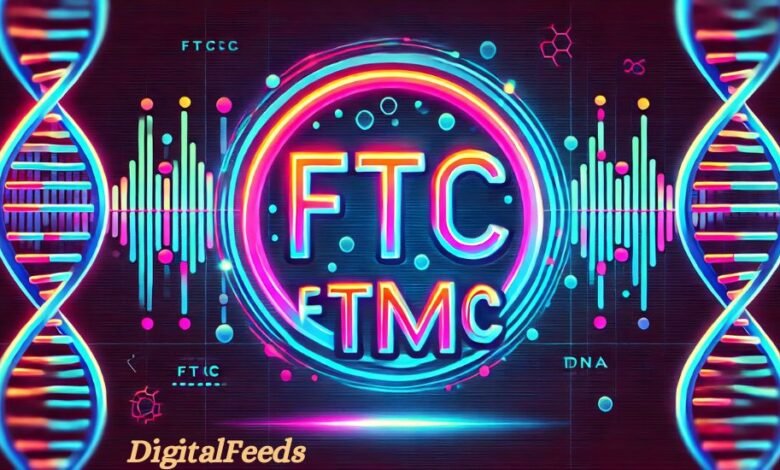FTMç Triumph: Authenticity and Overcoming Challenges
FTMç? Exploring the Complexities and Significance

FTMç, an acronym for “Female-to-Male Çhange,” encompasses the experiences, processes, and challenges involved in transitioning from female to male. This journey is multifaceted, involving psychological, social, and medical aspects. Understanding FTMç is crucial for fostering a more inclusive society and providing the necessary support for individuals undergoing this transition.
Psychological and Emotional Aspects of FTMç
The psychological journey of FTMç individuals is complex and deeply personal. Many experience gender dysphoria, a condition characterized by a conflict between one’s assigned gender at birth and their identified gender. Addressing gender dysphoria through therapy and counseling is vital for improving mental health and overall well-being.
Gender Dysphoria and Mental Health
Gender dysphoria can cause significant distress and anxiety. It is essential for FTMç individuals to have access to mental health support, including therapists and counselors who specialize in transgender issues. These professionals can provide a safe space for individuals to explore their identities and navigate the emotional challenges of transitioning.
Emotional Support and Resilience
Emotional support from family, friends, and peer support groups is invaluable for FTMç individuals. Building a network of supportive relationships can help individuals feel validated and understood, fostering resilience and empowerment throughout their transition journey.
Social Transition in FTMç
Social transitioning is a critical aspect of the FTMç journey. It involves changing one’s name, pronouns, and appearance to align with their gender identity. This process is essential for living authentically and can significantly impact an individual’s social interactions and relationships.
Changing Identity Documents
Updating identity documents, such as driver’s licenses, passports, and social security records, is an important part of the social transition. This process helps FTMç individuals have their gender identity legally recognized, reducing the potential for misunderstandings and discrimination.
Coming Out and Social Integration
Coming out as transgender can be a challenging yet liberating experience. It involves informing friends, family, colleagues, and others about one’s transition. Open communication and education about FTMç can help reduce stigma and foster a more inclusive environment.
Medical Transition in FTMç
Medical transitioning involves various treatments and procedures that help align an individual’s physical appearance with their gender identity. This can include hormone therapy, surgeries, and other gender-affirming treatments.
Hormone Therapy
Hormone therapy, particularly the administration of testosterone, is a common aspect of the FTMç medical transition. Testosterone helps induce masculine characteristics such as a deeper voice, facial hair growth, and increased muscle mass. This therapy is typically prescribed and monitored by healthcare professionals to ensure safety and effectiveness.
Surgical Options
Several surgical options are available for FTMç individuals, including chest reconstruction (top surgery), hysterectomy, and genital reconstruction surgeries such as phalloplasty or metoidioplasty. These surgeries help individuals achieve a sense of congruence with their gender identity and improve their overall well-being.
Cultural and Societal Impact of FTMç
FTMç has significant cultural and societal implications. It challenges traditional gender norms and promotes greater acceptance and inclusivity. Understanding the cultural context of FTMç is essential for supporting individuals on their journey and fostering a more inclusive society.
Gender Norms and Societal Perceptions
Traditional gender norms dictate how individuals should behave based on their assigned sex at birth. FTMç individuals often face discrimination and prejudice for not conforming to these norms. Educating society about gender diversity and promoting acceptance can help reduce these challenges.
Cultural Significance of FTMç
In various cultural contexts, FTMç reflects the evolving understanding of gender identity and expression. Different cultures have varying levels of acceptance and support for transgender individuals. Recognizing and celebrating this diversity is crucial for creating an inclusive environment where FTMç individuals feel supported and valued.
Support Systems for FTMç Individuals
Support systems play a crucial role in the well-being and success of FTMç individuals. These systems include family, friends, healthcare professionals, and online and offline support groups.
Family and Friends
Having a supportive network of family and friends can make a significant difference in the lives of FTMç individuals. Educating loved ones about FTMç and encouraging open, respectful communication can help build understanding and support.
Professional Support
Access to knowledgeable healthcare professionals who specialize in transgender care is essential. These professionals can provide guidance on medical treatments, mental health support, and navigating the legal aspects of transitioning.
Online and Offline Communities
Online and offline support groups offer a sense of community and belonging for FTMç individuals. These groups provide a platform for sharing experiences, offering advice, and connecting with others who understand the challenges and triumphs of the FTMç journey.
Overcoming Challenges and Misconceptions about FTMç
FTMç individuals face various challenges and misconceptions that can hinder their progress and well-being. It is essential to address these issues and promote a more accurate understanding of FTMç.
Common Misconceptions
One common misconception is that FTMç is simply a phase or a cry for attention. This dismissive attitude undermines the validity of individuals’ experiences and perpetuates harmful stereotypes. Educating society about the diverse range of gender identities, including FTMç, is crucial for fostering empathy and acceptance.
Access to Healthcare
Accessing appropriate healthcare services can be challenging for FTMç individuals. Transgender healthcare remains an underserved area with limited resources. Seeking out knowledgeable medical professionals who understand the unique needs of FTMç individuals is vital for maintaining overall well-being.
Social Stigma and Discrimination
Social stigma and discrimination create barriers in personal relationships, workplaces, and various other aspects of everyday life for FTMç individuals. Overcoming this stigma requires widespread education about transgender issues and fostering inclusive spaces where everyone feels safe expressing their true selves without fear of discrimination.
Future Developments and Innovations in FTMç
The future of FTMç holds exciting possibilities, with ongoing developments and innovations aimed at improving the transgender experience. These advancements will enhance both the physical and emotional aspects of the transition process.
Advancements in Hormone Therapy
Researchers are exploring new approaches to enhance the effectiveness and safety of testosterone treatments. These developments may lead to more tailored and personalized hormone regimens for individuals transitioning from female to male.
Surgical Innovations
Surgical techniques are continually evolving, with surgeons refining procedures such as chest masculinization (top surgery) and genital reconstruction surgeries. These innovations aim to achieve more natural-looking outcomes while minimizing scarring and complications.
Increasing Availability of Support Networks
The increasing availability of support networks and resources specifically designed for FTMç individuals is promising. Online communities provide a platform for sharing experiences, offering advice, and fostering connections among those navigating their gender journeys. Additionally, healthcare professionals are becoming better educated on transgender issues, leading to improved access to competent care across various medical disciplines.
Conclusion: Embracing the FTMç Journey
FTMç is a multifaceted process that involves psychological, social, and medical aspects. Each individual’s journey is unique, and understanding the various components of FTMç is crucial for providing better support and fostering a more inclusive society. By embracing diversity and promoting acceptance, we can create a world where FTMç individuals feel supported and celebrated for who they truly are.
FAQs
What does FTMç stand for?
FTMç stands for “Female-to-Male Çhange,” describing the process where individuals assigned female at birth transition to identify and live as male.
What is involved in hormone therapy for FTMç?
Hormone therapy typically involves administering testosterone to induce masculine characteristics such as a deeper voice, facial hair growth, and increased muscle mass. This therapy is usually prescribed and monitored by healthcare professionals.
What surgical options are available for FTMç individuals?
Surgical options for FTMç individuals can include chest reconstruction (top surgery), hysterectomy, and genital reconstruction surgeries such as phalloplasty or metoidioplasty. These surgeries help individuals align their physical appearance with their gender identity.
How can someone legally change their name and gender marker?
The process involves submitting legal documents, such as court orders or medical certification, to update identification documents like driver’s licenses, passports, and social security records. Procedures vary by jurisdiction.
What types of support are available for FTMç individuals?
Support includes online and offline support groups, professional therapists and counselors, knowledgeable medical professionals, and supportive friends and family networks.





